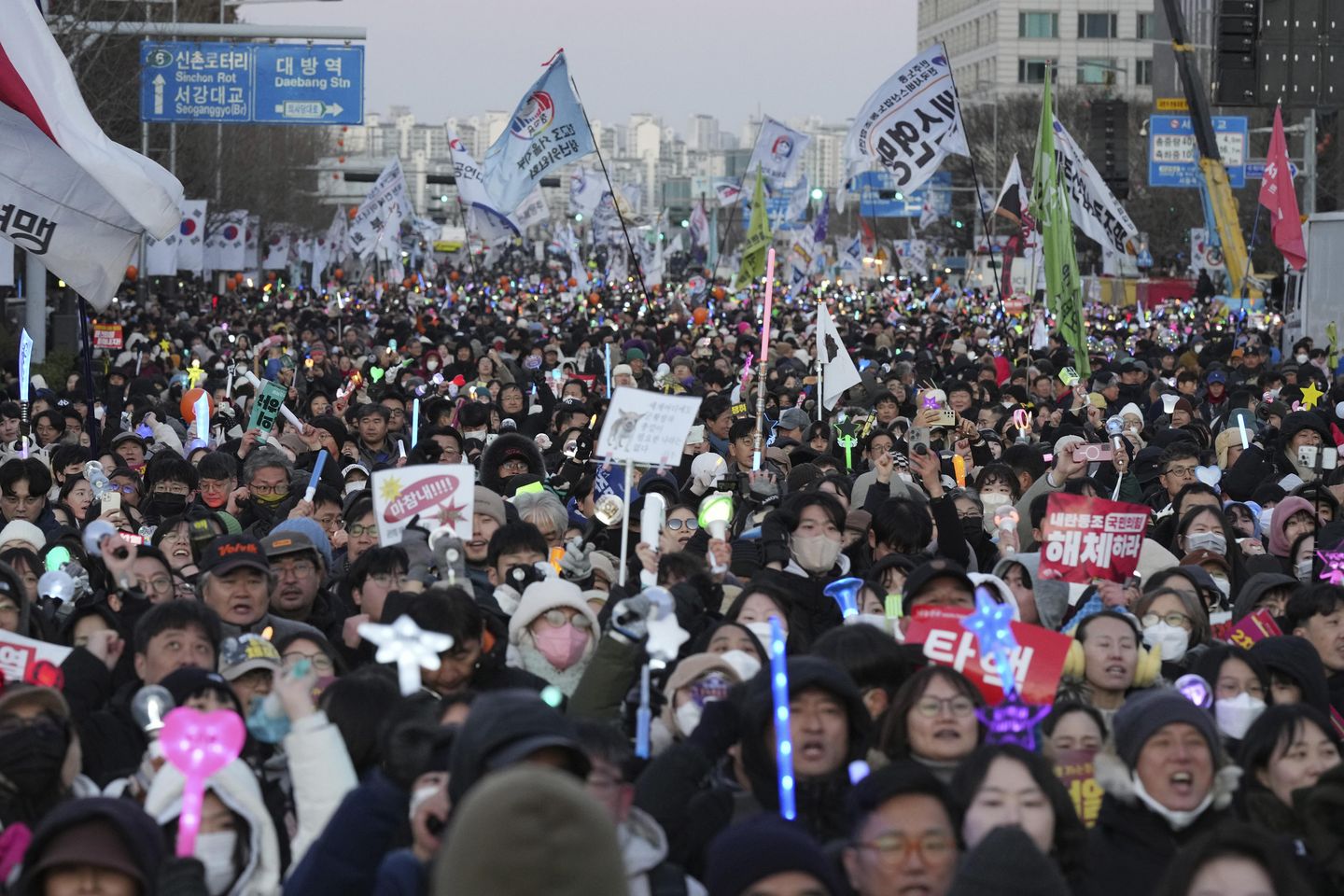The decision to impeach President Yoon Suk Yeol came after weeks of political turmoil and protests in South Korea. The impeachment vote, which passed with a large majority, effectively suspended President Yoon’s powers and placed Prime Minister Kim Boo-kyum in charge of the government.
The impeachment proceedings were initiated following allegations of corruption and abuse of power against President Yoon. The National Assembly launched an investigation into the allegations, which revealed a pattern of misconduct and unethical behavior by the president. As evidence mounted against him, pressure mounted for his removal from office.
The impeachment vote was a historic moment for South Korea, marking the first time in the country’s history that a sitting president had been impeached. The decision was met with both celebration and criticism, with supporters of the president decrying the move as a political witch hunt, while opponents hailed it as a victory for democracy and the rule of law.
In the wake of the impeachment vote, President Yoon released a statement expressing his disappointment and vowing to fight the decision in court. He maintained his innocence and claimed that the impeachment was a politically motivated attack designed to undermine his presidency.
The impeachment of President Yoon sent shockwaves through South Korea, with many wondering what would come next for the country. Prime Minister Kim Boo-kyum assumed the role of acting president, promising to uphold the constitution and lead the country through this challenging time.
As the country grappled with the fallout from the impeachment, protests erupted in cities across South Korea. Supporters of President Yoon took to the streets to demand his reinstatement, while opponents celebrated the decision as a triumph of justice.
The political uncertainty in South Korea was further exacerbated by growing tensions with North Korea. The rogue nation issued a statement condemning the impeachment of President Yoon and warning of potential consequences for the region.
Amidst the chaos, world leaders weighed in on the situation in South Korea. The United States expressed support for the impeachment process, calling it a necessary step towards restoring democracy and accountability in the country. China, on the other hand, condemned the move as an interference in South Korea’s internal affairs.
As the dust settled on President Yoon’s impeachment, South Korea faced a period of transition and uncertainty. The country grappled with questions about its future direction and leadership, as the political landscape shifted in the wake of the historic decision.
In the days following the impeachment, Prime Minister Kim Boo-kyum moved quickly to assert his authority and reassure the public. He announced plans for a new government and outlined his vision for the country’s future, promising to address the challenges facing South Korea head-on.
Despite the turmoil and uncertainty, many South Koreans remained hopeful for a brighter future. The impeachment of President Yoon marked a turning point in the country’s history, signaling a commitment to accountability and transparency in government.
As South Korea navigated the aftermath of President Yoon’s impeachment, the world watched with bated breath. The country’s future hung in the balance, as political leaders and citizens alike grappled with the implications of this historic moment.
In the end, the impeachment of President Yoon Suk Yeol was a watershed moment for South Korea. It was a clear signal that no one, not even the highest office in the land, was above the law. The country emerged from this tumultuous period stronger and more united, ready to face whatever challenges lay ahead.









